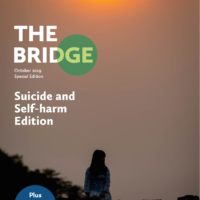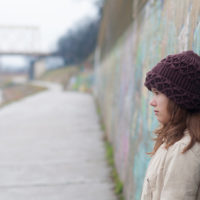Research digest
-

Summary of – Chapter: KidsTime Workshops: Strengthening resilience of children of parents with a mental illness
Summary of a chapter in the book Family Therapy – New Intervention Programs And Researches. The chapter introduces children of parents with mental illness (COPMI) as a group and explains the risk factors and the impact of parental mental illness on children.
Read more -

Family group cognitive behavioural therapy reduces youth internalising problems
Living with a parent with depression can have a marked impact on a child’s overall psychological, behavioural and social welfare. Preventative programs that alter parenting and boost children’s coping strategies in affected families seem to reduce youth internalizing problems, but the broader effects of these programs are unclear.
Read more -

Improving outcomes for children exposed to parental mental illness: “it takes a village”
This intervention aims to break down barriers to the care of vulnerable children of parents with a mental illness (COPMI) residing in Austria, and improve child development and well-being outcomes.
Read more -

Suicide and Self-Harm Special Edition
The National Confidential Enquiry into Suicide and Safety in Mental Health Annual Report (2018) highlighted that suicide in the under 20’s is rising generally and that the number of suicides rises towards late teens.
Read more -

Suicide and Self-harm Edition Editorial
The National Confidential Enquiry into Suicide and Safety in Mental Health Annual Report (2018) highlighted that suicide in the under 20’s is rising generally and that the number of suicides rises towards late teens.
Read more -

DBT-A reduces self-harming behaviours by improving feelings of hopelessness
Professor Lars Mehlum and colleagues have completed a prospective 3-year follow-up study, which showed that DBT-A has enduring effects in terms of reducing self-harm frequency in adolescents compared to EUC.
Read more -

Low parental belongingness increases suicidal ideation risk
The Saving and Empowering Young Lives in Europe (SEYLE) randomized controlled trial (RCT) was originally established to evaluate the efficacy of three school-based interventions on preventing suicide in 11,000 adolescents.
Read more -

Social cohesion and integration in schools reduces suicidal behaviour rate
Emerging data suggest that strengthening positive social bonds and improving social integration might reduce suicidal behaviours in youth to date; little research has studied the effect of social integration, on suicide behaviours, with reference to a young person’s social network structure — namely, an individual’s position within their network and the patterns of relationships among members of the network.
Read more -

Inflammation does not mediate an adverse childhood experience– self-harm risk association
Inflammation has been proposed to be a candidate mechanism contributing to the association between exposure to adverse childhood experiences (ACEs) and the risk of self-harm. In the first study of its kind, researchers in the UK have now directly studied whether inflammatory processes do indeed mediate this association.
Read more -

Individual changes in stress-level predict non-suicidal self-injury
In their latest study, Adam Miller and colleagues propose that these inconsistencies might be due to a reliance on “between-person” models that compare individuals with high stress levels to those with low stress levels.
Read more